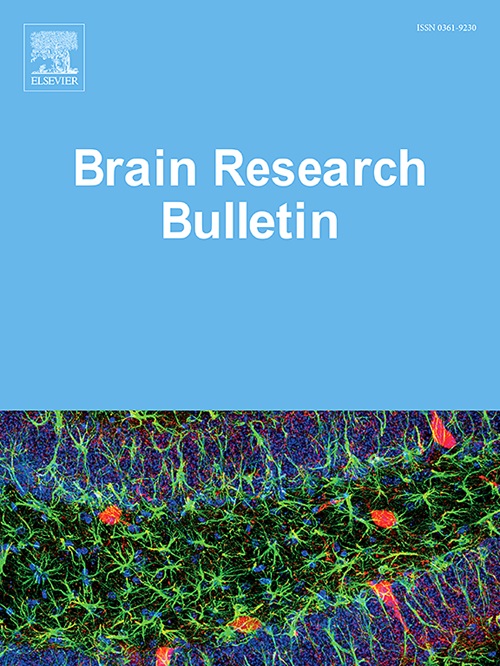芒果苷靶向PFKFB3,通过抑制糖酵解和PI3K/AKT/mTOR信号传导抑制胶质母细胞瘤进展
IF 3.7
3区 医学
Q2 NEUROSCIENCES
引用次数: 0
摘要
胶质母细胞瘤(GBM)是一种侵袭性和挑战性的原发性脑肿瘤,尽管手术切除,放疗和化疗取得了进展,但预后较差。近年来,靶向肿瘤细胞代谢途径已成为一种很有前景的癌症治疗策略。6-磷酸果糖-2-激酶/果糖-2,6-二磷酸酶3 (PFKFB3)是糖酵解的关键调节因子,在GBM中过表达,促进细胞增殖、迁移和存活。本研究旨在评价天然化合物芒果苷对GBM进展的抑制作用,并阐明其潜在机制。我们对天然化合物文库的筛选发现芒果苷是一种有效的PFKFB3抑制剂。体外实验表明,芒果苷通过靶向PFKFB3显著抑制PI3K/AKT/mTOR信号通路,诱导细胞周期阻滞于S期,促进GBM细胞凋亡。此外,芒果苷降低糖酵解通量,抑制细胞增殖和迁移。体内异种移植小鼠模型进一步验证了芒果苷的肿瘤抑制作用,没有观察到全身毒性。这些结果表明,芒果苷通过靶向PFKFB3,调节肿瘤代谢和生长,发挥抗GBM的作用。芒果苷有望成为针对GBM的靶向治疗的潜在治疗候选物。本文章由计算机程序翻译,如有差异,请以英文原文为准。
Mangiferin targets PFKFB3 to inhibit glioblastoma progression by suppressing glycolysis and PI3K/AKT/mTOR signaling
Glioblastoma (GBM) is an aggressive and challenging primary brain tumor with poor prognosis despite advances in surgical resection, radiotherapy, and chemotherapy. Recently, targeting tumor cell metabolic pathways has emerged as a promising strategy for cancer treatment. 6-Phosphofructo-2-kinase/fructose-2,6-bisphosphatase 3 (PFKFB3) is a key regulator of glycolysis and is overexpressed in GBM, promoting cell proliferation, migration, and survival. This study aims to evaluate the efficacy of the natural compound mangiferin in inhibiting GBM progression and elucidate its underlying mechanisms. Our screening of a natural compound library identified mangiferin as a potent PFKFB3 inhibitor. In vitro experiments demonstrated that mangiferin significantly inhibited the PI3K/AKT/mTOR signaling pathway by targeting PFKFB3, induced cell cycle arrest in the S phase, and promoted apoptosis in GBM cells. Additionally, mangiferin reduced glycolytic flux, inhibiting cell proliferation and migration. In vivo xenograft mouse models further validated the tumor-suppressive effects of mangiferin, with no observed systemic toxicity. These findings indicate that mangiferin exerts its antitumor effects on GBM by targeting PFKFB3, regulating tumor metabolism and growth. Mangiferin holds promise as a potential therapeutic candidate for the development of targeted therapies against GBM.
求助全文
通过发布文献求助,成功后即可免费获取论文全文。
去求助
来源期刊

Brain Research Bulletin
医学-神经科学
CiteScore
6.90
自引率
2.60%
发文量
253
审稿时长
67 days
期刊介绍:
The Brain Research Bulletin (BRB) aims to publish novel work that advances our knowledge of molecular and cellular mechanisms that underlie neural network properties associated with behavior, cognition and other brain functions during neurodevelopment and in the adult. Although clinical research is out of the Journal''s scope, the BRB also aims to publish translation research that provides insight into biological mechanisms and processes associated with neurodegeneration mechanisms, neurological diseases and neuropsychiatric disorders. The Journal is especially interested in research using novel methodologies, such as optogenetics, multielectrode array recordings and life imaging in wild-type and genetically-modified animal models, with the goal to advance our understanding of how neurons, glia and networks function in vivo.
 求助内容:
求助内容: 应助结果提醒方式:
应助结果提醒方式:


